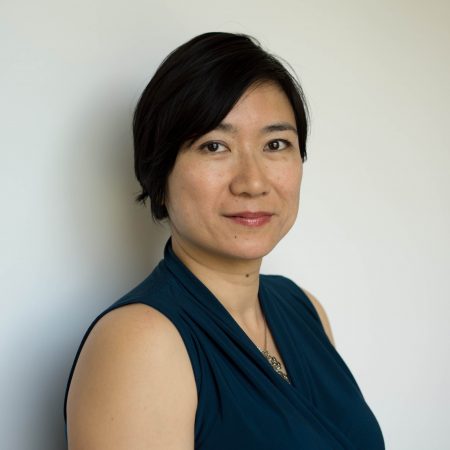
By Alisa Kim
In Canada, people with one or more chronic conditions are often hospitalized, discharged when they are stable, and then re-hospitalized as their health takes a turn for the worse at home. It’s a problem that has occupied Dr. Emily Seto, an assistant professor at the Institute of Health Policy, Management and Evaluation, for a while.
“They come out of hospital, and sometimes, somebody may follow up with them, but they’re pretty much on their own. They’re at an important but precarious stage because they can easily relapse and get sick and need to go back to the hospital,” says Seto, who notes that treating complex patients, who comprise just 5% of the population, accounts for more than one-half of all health care spending. “It’s bad for the patient, and it’s bad for the system because people are going in and out of the hospital over and over again. We don’t want that to happen, but they aren’t getting support,” she says.
Seto will explore a means of filling the gap in care for people with chronic conditions including heart failure, chronic obstructive pulmonary disease, high blood pressure, diabetes, and mental illness, thanks to a Project Grant from the Canadian Institutes of Health Research. She credits the support she received from the Office of Research at the Dalla Lana School of Public Health in preparing her proposal with the application’s success. She will receive nearly $1.2 million over four years to study a nurse-led model of integrated care combined with remote monitoring to help manage people that are at high risk of hospitalization. The research will explore the best way to implement a virtual integrated complex care clinic, and the impact of the clinic on outcomes like readmission to hospital.
Under this model, a nurse or nurse practitioner is the point person for communicating with the patient and the care team to plan and execute a strategy that accounts for all of the patient’s health conditions. It addresses a huge challenge in chronic disease management: specialist physicians working in siloes as they treat someone with multiple illnesses. “If you have somebody whose job it is to look at this person holistically in terms of all of their chronic conditions, especially at a time when they’re most vulnerable and at high risk for hospitalization, then you can help the patients stabilize, save a lot of money for the health care system, and get a plan that works longer term,” says Seto.
The project will have nurses monitoring people within the first few months of being discharged—a period in which, Seto notes, they are most likely to be readmitted to hospital. The nurse follows people via an app that is downloaded onto their smartphone that is used to track important metrics like weight and blood pressure. The app uses an algorithm to determine when certain parameters are cause for concern, and generates an alert to the nurse as needed and also sends self-care instructions back to the patient. “The idea here is to intervene at the earliest signs of things going wrong. It could be a medication change, or education around lifestyle or behaviour; or it may be more information that they need medical intervention,” she says.
For people without a smartphone, there is an option of providing one. “We don’t want to make it a barrier if they don’t have the technology,” says Seto.
Her goal is to understand how to implement this model of care in different settings across Ontario and the country, including rural areas. Looking at the bigger picture, Seto says she hopes the research will provide evidence to support a new way of managing difficult, ongoing health conditions. “It’s a paradigm shift in how we’re treating complex patients. We’re managing them in a holistic way using technology to support them during a crucial time when they need to stabilize. I’m hoping this will help fill a huge gap that exists right now in our health care system.”
Related News

Sign up for IHPME Connect.
Keep up to date with IHPME’s News & Research, Events & Program, Recognition, e-newsletter.
Subscribe to Connect Newsletter
Get in Contact
Communications
Marielle Boutin
Email Address: ihpme.communications@utoronto.ca





